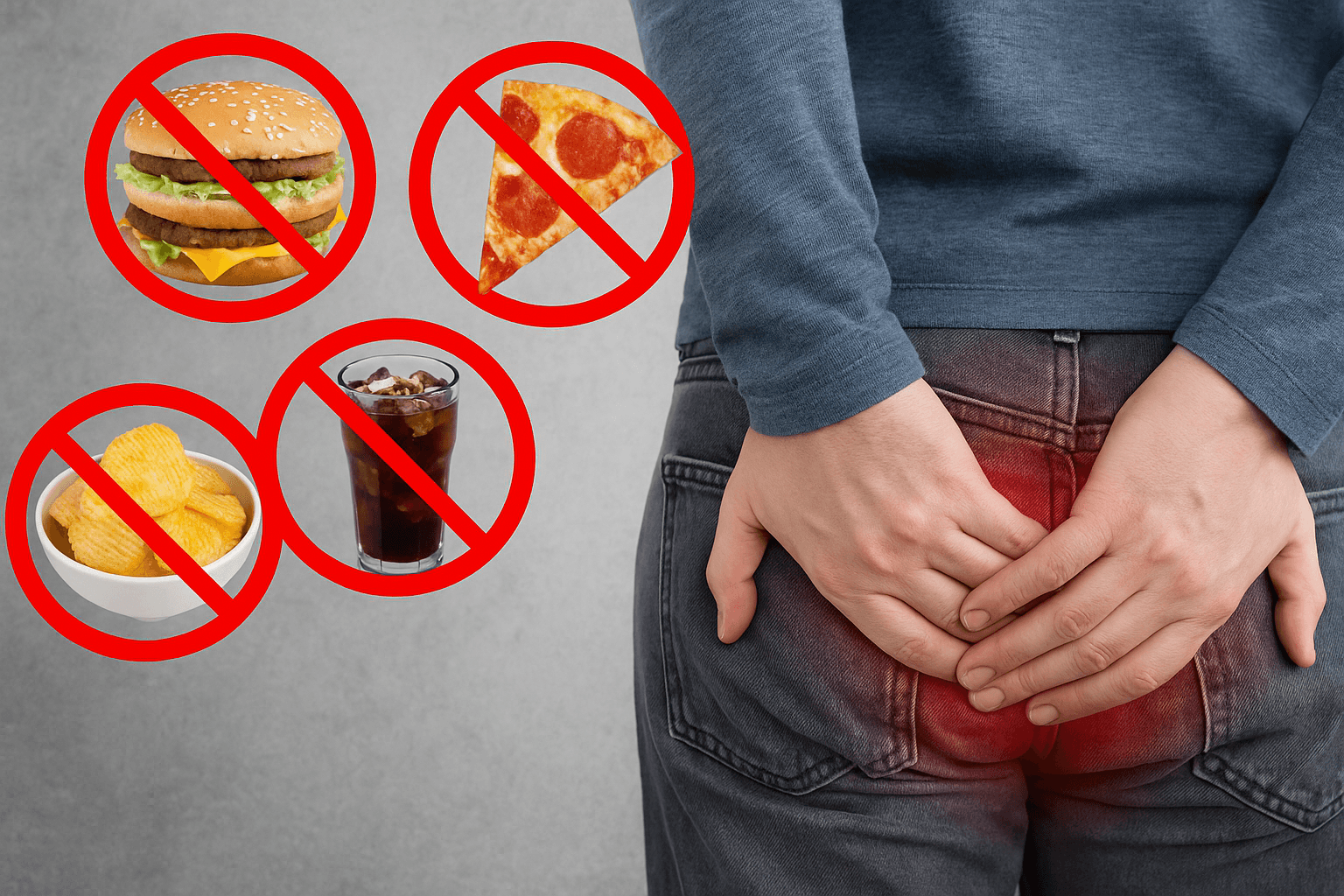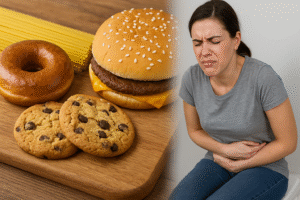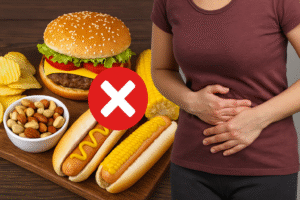Living with hemorrhoids is, in many cases, carrying about an irritation problem. If you’ve ever been through the itching, swelling or painful bowel activities, you are touching company! Who doesn’t suffer from hemorrhoids? The figures are kind of scary, running up to millions each year. While there are treatment procedures in existence your diet remains central in the control of symptoms as well as avoiding a flair-up. So what you put in your mouth and more importantly what you do not put in there can affect your comfort so much. Today we are talking about the top foods to avoid when having hemorrhoids and how just a few changes in the diet can mean less discomfort.
Why What You Eat Matters When Dealing with Hemorrhoids
Before we unpack the list of edibles, let’s quickly consider why diet matters when it comes to piles. Fundamentally, piles are essentially inflamed vessels in your rectum or anus that can have multiple causes, although one stands out as the main trigger, namely straining during bowel movements. A low-fiber diet will precipitate solid stools, which are difficult to be expelled without a lot of straining-that is extra work and added pressure on those inflamed veins. It’s not all so doomsday, though; a good fibrous and hydrated diet eases the work of defecation and the whole digestive system as a whole. But if you’ve placed wrong options on your plate, you’re just inviting more irritation and flare-ups.
1. Processed Foods
Most importantly, processed foods should be avoided. These include but are not limited to, frozen dinners, snack foods, prepackaged meals, and fast food.
– Low in fiber
– High in sodium
– Can dehydrate the body
They also do not have the vital fiber for proper digestion while their salt content can lead to the most uncomfortable conditions of constipation and bloating – conditions you surely would not want to have with hemorrhoids.
Quick tip: Swap microwave meals for quick, easy-to-make home-cooked meals. A bowl of oatmeal with fruit or a vegetable stir-fry is much easier to digest.
2. White Bread and Refined Grains
Was anyone ever satisfied by a slice of white bread after eating a sandwich? Of course not. The fiber’s been stripped away, leaving only refined grains that will surely lead to constipation. Typical examples include:
– White rice
-High carbohydrate products like pasta and pastries
-Soft drinks
Instead, opt for whole grain alternatives like brown rice whole wheat bread, quinoa, which are a healthy choice. Much healthier for your digestive system!
3.Dairy Products
Not all dairy needs to be removed from the diet, but some dairy items can be irritating for people with hemorrhoids. Cheeses, whole milk, and ice cream may slow down digestion, especially if you happen to be low-grade lactose intolerant. Dairy will tend to harden the stools and increase difficulty in passage, which then results in strain while defecating and hence more pressure on swelling hemorrhoids.
4. Red Meat
If you like steak, that’s OK—it’s just not a very hemorrhoid-friendly food because it’s so hard to digest and low in fiber. It’ll sit in your gut longer than other foods do, which slows everything down, spiking your chances of getting backed up.
Instead of red meat, choose fish or chicken, and plant-based proteins like lentils or tofu to ensure the digestive system doesn’t have to work an extra mile to process them for the required protein content.
6. Alcohol
Alcohol irritates the stomach lining and increases the production of stomach acid, creating more digestion issues if consumed with fried food. Additionally, it introduces a lot of sodium, therefore recommended for those who experience bloating.
Stick to baked, grilled, or air-fried varieties for a healthier choice that is friendlier to your digestive system.
That evening wine or weekend cocktail may seem all that bad, but yeah, it’s a known dehydrator. As you’re dehydrated, bowel movements can become more challenging (do you notice a pattern here?). It often irritates your stomach and may make it tough to digest further enhancing hemorrhoid symptoms.
If you must drink alcohol ensure that you are taking extra fluids by drinking a glass of water for every alcoholic drink and limit alcohol intake in case of flare-ups.
7. Spicy Foods
You’ve surely splashed hot sauce on something in your lifetime. Regrettably, spicy foods like these can provoke hemorrhoid pain during bowel movements—in particular if you have inflammation. Chili and cayenne, as well as jalapeños, are all spices that can sting the digestive track on the way down and cause it to feel inflamed, or even sensitive, when going to the bathroom.
In case of discomfort from spicy foods, reduce the consumption of the same while symptom management.
Let’s talk about some helpful alternatives now that you know what to avoid.
Staying soft and easy to pass is crucial, and fiber is your best ally. Get these into your meals: Fresh fruits like berries, apples (with skin!), and pears Dark leafy greens like spinach, kale, and Swiss chard Whole grains such as oats, barley, and brown rice
– Lentils, black beans chickpeas
– Water–drink plenty of it! Yogurt and berries and 100% whole-wheat products are good snacks options to be divided with a whole wheat veggie wrap and hummus which, like the other alternatives, are also very tasty.
Final Thoughts: Be Kind to Your Gut
When it comes to hemorrhoids, one’s diet can have a pretty substantial impact. No one particular food is the cause of hemorrhoids, but some dietary choices can either worsen or improve matters. The rule would be to take whole, fibrous food and a good amount of water and avoid extreme processed food, spice, and fat during flare.
It might take some trial and error to find out what’s right for your body. Listen to how your body responds after eating, and don’t be shy in getting in touch with a healthcare provider or a registered dietitian for a well-tailored plan. Your body will thank you, and your trips to the bathroom will be much less taxing.
Have you found dietary changes that eased your hemorrhoid symptoms? Tell us about it in the comments!








